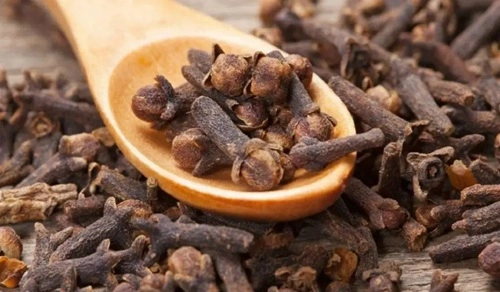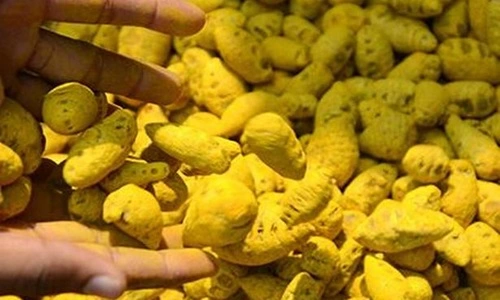Clove, known for its aromatic dried flower buds, is a valuable spice widely used in culinary, medicinal, and industrial applications. Cloves are renowned for their strong aroma, essential oil content, and medicinal properties, which include anti-inflammatory, antioxidant, and antimicrobial benefits. Clove cultivation is a significant part of the spice economy in India, with rising domestic demand and export potential.
India is one of the leading producers of cloves, primarily grown in the humid and tropical climates of the Western Ghats, Kerala, Tamil Nadu, Karnataka, and parts of the Andaman and Nicobar Islands. Clove trees require well-drained, fertile soils and thrive in regions with adequate rainfall and shade.
In this article, we highlight more than 10 top clove varieties in India, their characteristics, regions of cultivation, and uses.

1. Zanzibar Clove
Zanzibar clove is one of the most widely cultivated varieties, known for its high essential oil content.
- Origin: Zanzibar (adapted to India)
- Tree Size: Medium to tall, with good canopy
- Bud Characteristics: Large, dark brown, and aromatic
- Regions: Kerala, Tamil Nadu, Karnataka
- Characteristics:
- High yield and oil content (18–20% eugenol).
- Suitable for commercial farming.
- Uses: Spices, essential oil extraction, and medicinal applications.
2. Amboyna Clove
Amboyna is another high-yielding clove variety known for its large, aromatic buds.
- Origin: Indonesia
- Tree Size: Tall, with dense foliage
- Bud Characteristics: Large, reddish-brown buds with a strong aroma
- Regions: Tamil Nadu, Kerala
- Characteristics:
- High eugenol content (15–18%).
- Drought-resistant and adaptable to Indian climates.
- Uses: Food seasoning, medicines, and oil production.
3. Kalyani Clove
Kalyani is an improved variety developed for high yield and better adaptability.
- Origin: Indian-developed variety
- Tree Size: Medium-sized
- Bud Characteristics: Medium-sized buds with light-brown color
- Regions: Karnataka, Kerala
- Characteristics:
- High bud productivity under tropical conditions.
- Resistant to common clove diseases.
- Uses: Culinary uses, spices, and essential oils.
4. Siputih Clove
Siputih is a variety known for its long, aromatic flower buds and high oil content.
- Origin: Indonesia
- Tree Size: Tall, with strong branches
- Bud Characteristics: Light brown, elongated buds
- Regions: Kerala, Tamil Nadu
- Characteristics:
- High yield under humid conditions.
- Well-suited for shaded plantations.
- Uses: Flavoring, medicines, and aromatic oils.
5. Penang Clove
Penang clove is recognized for its high quality and excellent spice yield.
- Origin: Malaysia
- Tree Size: Medium to tall
- Bud Characteristics: Dark brown, short, and highly aromatic
- Regions: Karnataka, Andaman & Nicobar Islands
- Characteristics:
- Adaptable to humid, tropical climates.
- Resistant to fungal diseases.
- Uses: Culinary spices, perfumes, and essential oils.
6. West Indies Clove
West Indies clove is cultivated for its strong flavor and rich eugenol content.
- Origin: Caribbean region
- Tree Size: Tall, with wide canopies
- Bud Characteristics: Medium-sized, dark reddish-brown
- Regions: Kerala, Tamil Nadu
- Characteristics:
- High essential oil recovery.
- Resistant to waterlogging and humid conditions.
- Uses: Food seasoning, aromatics, and therapeutic oils.
7. Mardica Clove
Mardica clove is known for its high oil yield and uniform bud quality.
- Origin: Indonesia
- Tree Size: Medium-sized
- Bud Characteristics: Large, uniform buds with a reddish tinge
- Regions: Tamil Nadu, Karnataka
- Characteristics:
- Adapted to tropical climates with adequate rainfall.
- High eugenol concentration (17–20%).
- Uses: Medicinal applications, food flavoring, and oil extraction.
8. Srilankan Clove
Srilankan clove is a highly aromatic variety grown for its export-quality buds.
- Origin: Sri Lanka
- Tree Size: Medium to tall
- Bud Characteristics: Dark brown, small-sized but highly aromatic
- Regions: Kerala, Tamil Nadu
- Characteristics:
- High oil content with a distinct aroma.
- Preferred in international markets.
- Uses: Export, perfumery, and essential oils.
9. A9 Clove
A9 is an improved variety developed for high productivity and disease resistance.
- Origin: Research-developed (India)
- Tree Size: Medium-sized
- Bud Characteristics: Dark brown, elongated buds
- Regions: Kerala, Karnataka
- Characteristics:
- High yield with large flower buds.
- Resistant to common clove pests.
- Uses: Culinary, oil distillation, and local markets.
10. Zanzibar-2 (Hybrid)
Zanzibar-2 is a hybrid variety offering high yields and adaptability to humid climates.
- Origin: Hybrid variety (India-Zanzibar cross)
- Tree Size: Tall, with strong branches
- Bud Characteristics: Dark reddish-brown and aromatic
- Regions: Kerala, Andaman Islands
- Characteristics:
- High oil yield with consistent quality.
- Suitable for shaded plantations and intercropping.
- Uses: Spice industry, medicinal oils, and value-added products.
11. Local Malabar Clove
Malabar clove is a traditional variety grown in the Western Ghats with high aromatic properties.
- Origin: Indigenous
- Tree Size: Medium to large
- Bud Characteristics: Medium-sized, dark brown
- Regions: Kerala, Tamil Nadu
- Characteristics:
- Well-suited to the local agro-climatic conditions.
- Moderate oil yield and bud quality.
- Uses: Local consumption and traditional medicines.
FAQs
Q1: Which state in India is the largest producer of cloves?
A: Kerala is the largest producer of cloves in India, followed by Tamil Nadu and Karnataka.
Q2: What are the ideal climatic conditions for clove cultivation?
A: Clove thrives in tropical, humid climates with an annual rainfall of 150–250 cm and temperatures between 20–30°C.
Q3: Which clove variety has the highest oil content?
A: Zanzibar and Mardica varieties are known for their high oil content, ranging from 18–20%.
Q4: How long does it take for a clove tree to start yielding?
A: Clove trees start yielding after 6–7 years of planting, with peak production occurring after 15–20 years.
Q5: What is the average yield of clove per tree?
A: On average, a clove tree yields 4–8 kg of dried buds annually, depending on the variety and management practices.
Q6: What are the main uses of cloves?
A: Cloves are used as spices in cooking, essential oils in perfumes, and for medicinal purposes like dental care, digestion, and aromatherapy.
Clove cultivation in India is a lucrative option for farmers in tropical and humid regions. Improved varieties like Zanzibar, Amboyna, Kalyani, Siputih, and Mardica offer high yields, superior quality, and adaptability to Indian conditions. With growing domestic and global demand, cultivating cloves can contribute significantly to the income of farmers and enhance India’s spice export market.

